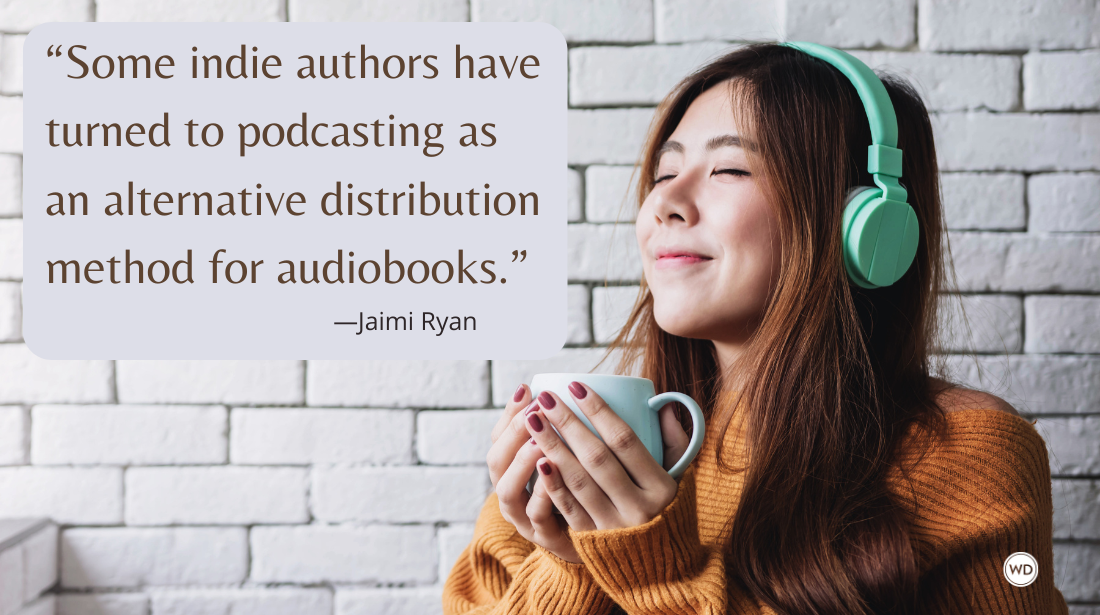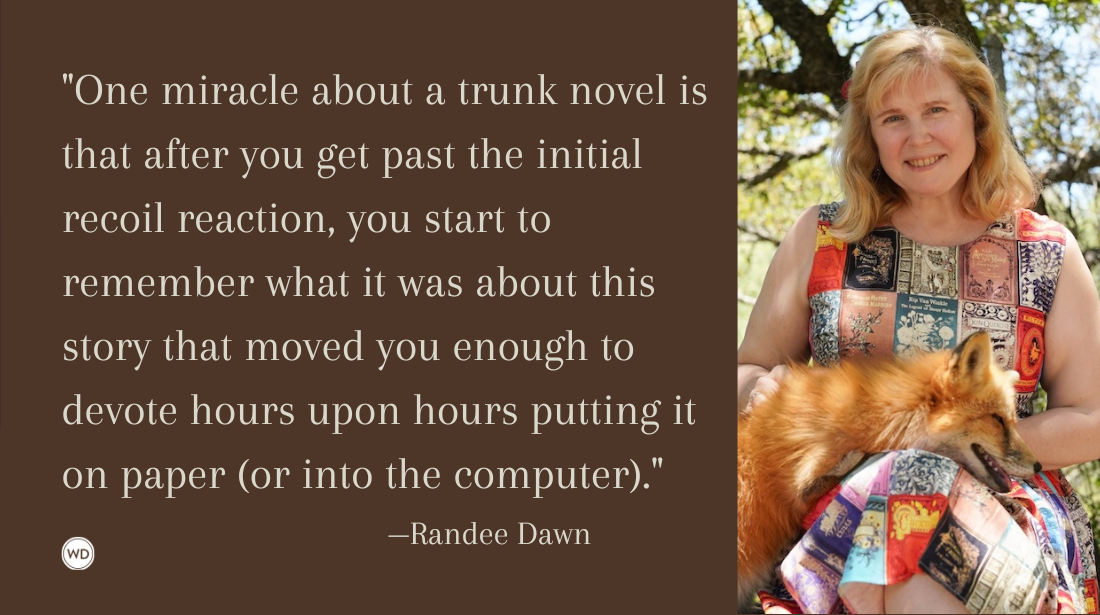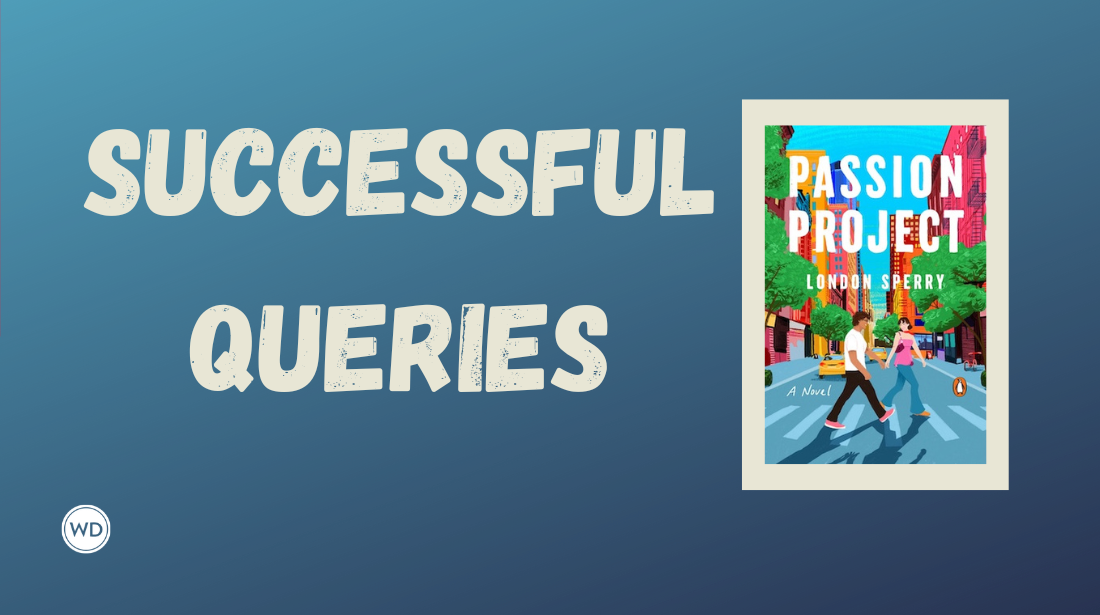Writing Mistakes Writers Make: Overreacting to Disappointment
The Writer’s Digest team has witnessed many writing mistakes over the years, so this series helps identify them for other writers (along with correction strategies). This week’s mistake is overreacting to disappointment, whether it’s related to your writing or your career.
Everyone makes mistakes—even writers—but that's OK because each mistake is a great learning opportunity. The Writer's Digest team has witnessed many mistakes over the years, so we started this series to help identify them early in the process. Note: The mistakes in this series aren't focused on grammar rules, though we offer help in that area as well.
Rather, we're looking at bigger picture mistakes and mishaps, including the error of using too much exposition, hiding your pitch, or chasing trends. This week's writing mistake writers make is overreacting to disappointment.
Writing Mistakes Writers Make: Overreacting to Disappointment
This mistake crops up from time to time, but a recent incident specifically inspired this post. An author had a book due out this September and was in the process of receiving reviews from advance readers. One such reader gave a 4 (out of 5) review and said they loved it but the ending was predictable. This caused the author to start overreacting on TikTok attacking the reviewer (with profanities) for ruining their (up until then) perfect collection of 5-star reviews.
The initial 4-star reviewer changed their rating to 1-star, and many other people started piling in with their own 1-star reviews. But the story doesn't end there, because the publisher ended up dropping the author and pulling the book from production. And so a favorable (if not perfect) book review was turned into a big old mess by the author because they let their disappointment go out of control in a very public way.
I'm not going to get into whether an author should feel disappointment or not, because that's a very personal thing. The problem isn't the disappointment; it's the expression of that disappointment in a very public way that ended up producing even worse reviews and the book getting pulled.
But this case is extreme. There are smaller versions of this story, including the author who gets very angry at their critique group for giving feedback they didn't want to hear. Or the freelancer who tries to argue with an editor when they decide to pass on their story or pitch. It's OK to feel disappointment; in fact, that's a very human emotion. But overreacting in a public way can burn bridges and hurt a writing career.
Mistake Fix: Walk Away and Vent
Notice I didn't say something like, "Grow thicker skin," or, "Shrug it off." I really do feel everyone has their different levels of tolerance for disappointment, and it's completely OK for you to feel what you feel. The mistakes I've seen is in the reaction to that disappointment, often made in the heat of the moment while the sting is still stinging.
It's in this moment when an author who received a 4-star review begins to attack a book reviewer (for a favorable review) on TikTok. It's also in this moment that a writer might lash out at their critique group when they all have trouble understanding the same plot point in a story. And yes, it's also in this moment that a freelancer fires an email to an editor to criticize their editing skills for not accepting their amazing story or pitch.
The disappointment is real and valid; the reaction is wrong and may end friendships, alliances, and close doors to future success. So instead of following that initial impulse to lash out when you feel that disappointment, walk away from your computer and do one of the following:
- Find an unaffiliated friend and vent.
- Open up a journal or file and vent.
- Keep walking.
Personally, I've found I like to go running when I'm overwhelmed by disappointment. Also, I've done some serious cleaning of the basement, garage, office, and other places as a result of needing to blow off steam. (Yes, editors feel disappointment the same as writers and other human beings.)
The point is not to silence your feelings. Rather, it's to find ways to keep those feelings from silencing your writing career (very literally in the case of the author referenced above). After all, rejection happens, non-5-star reviews happen, criticism (constructive and not-so-constructive) happens; but writers need to persevere if they want to find success, which probably isn't something measured in stars.
*****
This one-week intensive will walk you through the process of finding comparable titles and authors. Finding and using “comp” titles is one of the hardest parts of querying and this class will demystify the process.
Robert Lee Brewer is Senior Editor of Writer's Digest, which includes managing the content on WritersDigest.com and programming virtual conferences. He's the author of 40 Plot Twist Prompts for Writers: Writing Ideas for Bending Stories in New Directions, The Complete Guide of Poetic Forms: 100+ Poetic Form Definitions and Examples for Poets, Poem-a-Day: 365 Poetry Writing Prompts for a Year of Poeming, and more. Also, he's the editor of Writer's Market, Poet's Market, and Guide to Literary Agents. Follow him on Twitter @robertleebrewer.








